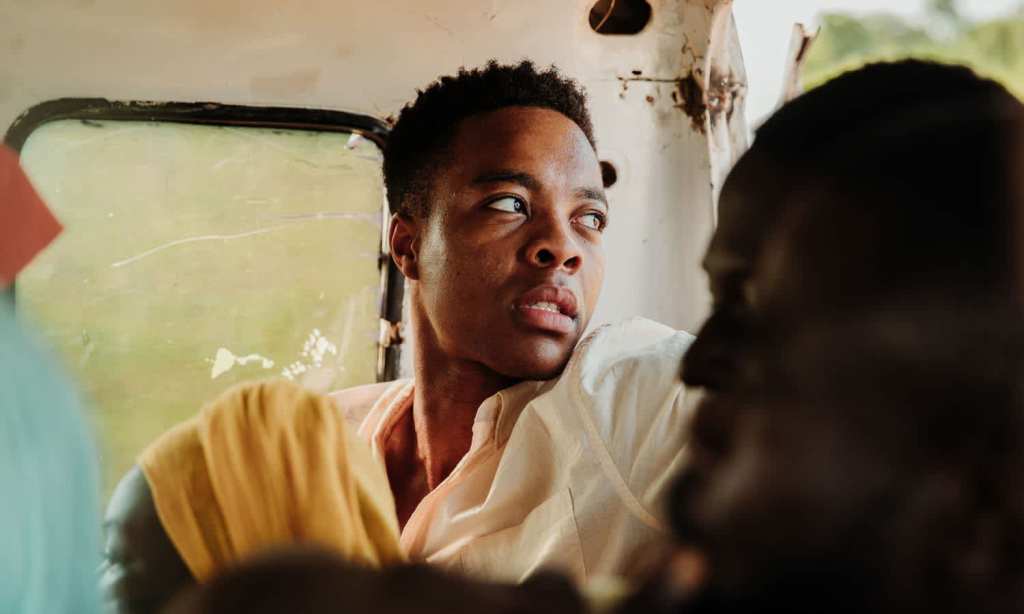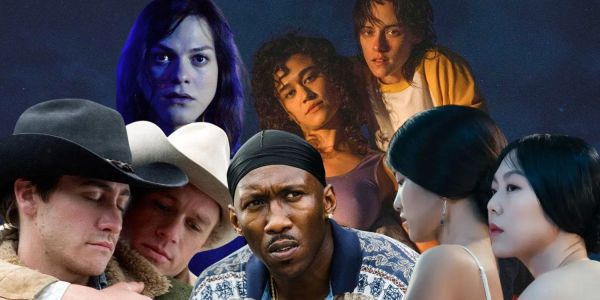This article is part of Greenlight — The Latch’s commitment to the Australian film industry. For more content in this series, click here.
Having travelled around Australia and done six screenings of Akoni in just five days, filmmaker Genna Chanelle Hayes said she was “quite tired”, but also nervous and excited for the Sydney screening that night.
“Today’s a really big day,” Hayes told The Latch over the phone. “But it was nice to be in my own bed!”
Akoni is Hayes’ first feature film, and it’s a project that is truly hers from start to finish. Hayes wrote, directed, produced and starred in the film, and even did work on the sound design, production design and with the costumes.
The film is about Akoni (Kit Esuruoso), a Nigerian refugee who is homeless and struggling to integrate into Australian society after escaping conflict. Then, he meets a woman (played by Hayes), who opens her home, and her heart, to him.
Hayes said that the story was born when she fell in love with a Nigerian man while in the United Kingdom.
“I started spending time with his family and… learning about West African culture, and I have a journalism degree, so spending time with them, and him, made me start researching West Africa and Nigeria because I hadn’t been to West Africa,” Hayes explained.
Related: The Trailer for Daniel Johns’ Short Film ‘What If the Future Never Happened?’ Is Here
Related: See Natalie Portman as Mighty Thor in the Trailer for ‘Thor: Love and Thunder’
After learning about the Boko Haram conflict and realising the number of people who have been displaced as a result of it, Hayes soon found that her “passion for human rights and real-life love story” filtered their way through her, and “out onto a script”, which would eventually become Akoni, which was filmed across Australia, Ghana and Nigeria.
With the film, and all of her work, Hayes hopes to “contribute to making the world a better place”.
“I want to use my time here wisely,” she said, “and I don’t want to ask anybody to sit down and give me 90 minutes of their time unless the story’s worthy. I think the story is worthy, because it builds an understanding and illustrates that connection is the only way forward.”
She continued: “We look at each other and we’re trained to see differences, but I think if we can look at each other and focus on similarities, we are more similar than we are different, and that’s how we can come together and we can avoid conflict and we can use communication to avoid conflict and to build understanding so we can live peacefully.”
Hayes said that Akoni “is polarising” as a film, a challenge due in great part to the ongoing conversation in the arts industry around who should tell what stories.
“People either love it or hate it, because, as I’ve been told, it’s a political film,” Hayes said, adding: “There’s a lot of challenge in regards to me being a white person telling a refugee story line, and there’s a lot of policing of storytelling in this very political climate.”
Hayes herself does not believe the film is political, nor did she have any hesitation in telling the story.
“It’s not something I had questions about because it’s my story!” she exclaimed. “I didn’t decide, ‘okay, I’m going to tell a refugee story’, it just happened.”
Hayes added: “If I’m not going to tell this story, the refugees in detention centres can’t tell their story, they can’t get their voices out!”
“We all need to come together and fight for each other,” she continued. “The more we point at each other’s differences, the more division we create, and the uglier the future looks.”
Rather than “shying away from” her privilege as a white person, Hayes said she would rather use that power for good, and to uplift the voices of those who can’t.
Related: PSA: Netflix’s ‘Spiderhead’ Is Great, Even If They Haven’t Advertised It
Related: After Playing Elvis Presley in Baz Luhrmann’s ‘Elvis’, Austin Butler Is Becoming a Household Name
“If you’ve got this thing that can help other people, why would you not use that?” she asked. “It’s worse not to use that, it’s worse to stand back and watch. It’s worse to stand back and watch people suffer.”
“There is so much to learn,” she acknowledged, “and I have been on that road learning that for a long time.”
“If I make a misstep or whatever, then I’ll own it and be grateful that I know better now,” she said. “But that’s the point. We can’t be scared to learn and we can’t be scared to make mistakes, we can’t be scared to love each other.”
“It’s about unifying at the end of the day.”
Akoni will be screening in select cinemas from June 30.







